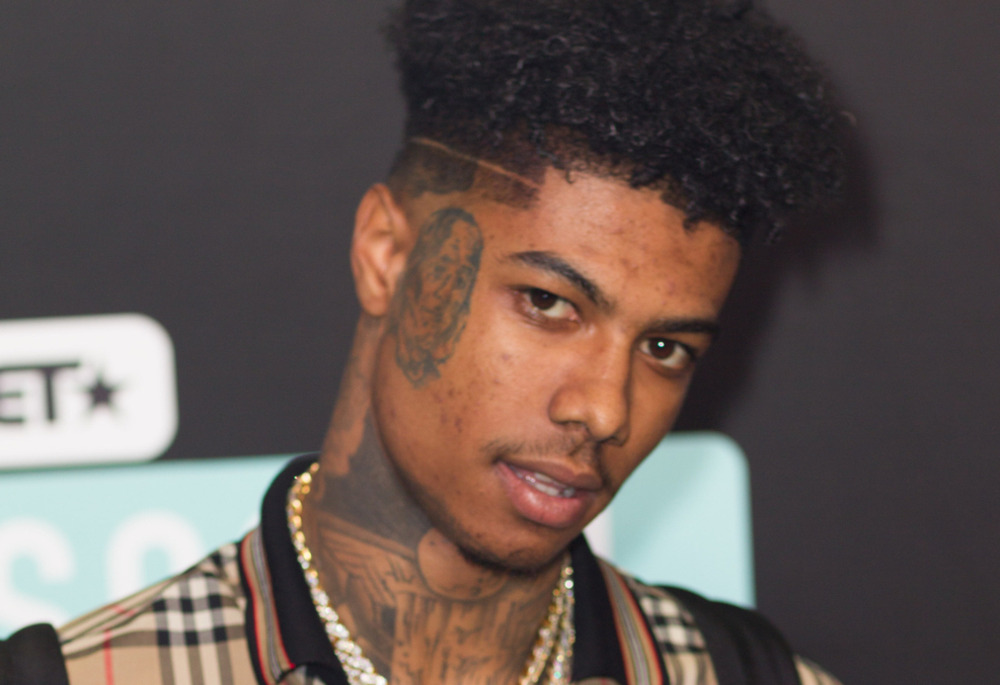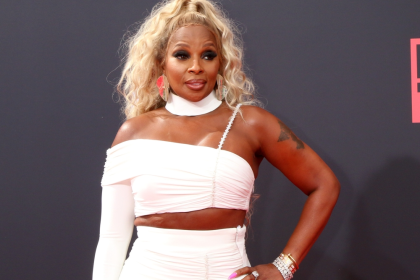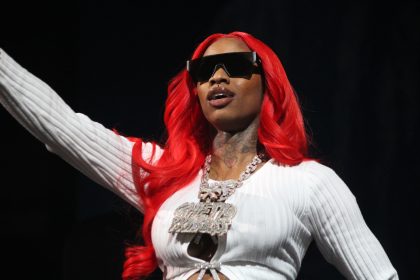Rapper Blueface may have secured an early release from his four-year prison sentence, according to an inadvertent revelation by his mother, Karlissa Saffold Harvey, during a social media discussion about his relationship status.
Previously expected home by spring 2025, Blueface’s apparent release came to light when his mother commented, “Now y’all just going to let anybody in the circus,” while addressing rumors about his connection to Chrisean Rock.
The disclosure occurred amid family debate over Blueface’s alleged marriage to Rock, sparked by her Instagram bio change. “You got to stand in front of the pastor. You got to sign them documents,” Karlissa emphasized, dismissing marriage speculation.
Conflicting family statements emerged as Blueface’s aunt Karletta urged public acknowledgment of the supposed marriage, while Karlissa posted, “The news is, they lied on her and him and they are not married. Stop wishing bad things on young people you know are not meant for each other.”
Legal experts note early releases often involve strict probation terms and monitoring requirements. Prison reform advocates cite this case as an example of sentencing flexibility within the justice system.
Industry observers suggest the rapper’s unexpected return could impact scheduled releases and collaborations. Music executives anticipate strong market interest in Blueface’s post-prison musical output.
Social media analysts report significant engagement with family members’ posts about his status, indicating sustained public interest in the rapper’s personal life.
Entertainment journalists note how family dynamics increasingly influence hip-hop narratives, with social media providing unprecedented access to artists’ private lives.
Recent developments suggest complex relationships between artists’ public personas and family interventions in their personal affairs.
Media coverage highlights growing intersection of social media, family drama, and artist publicity in contemporary hip-hop culture.
Sources close to the situation suggest potential new music releases planned to coincide with his return. Studio sessions reportedly scheduled with prominent producers indicate active career resumption.
Record label executives express optimism about Blueface’s market potential post-release, citing strong streaming numbers during his absence and sustained fan interest.
Cultural critics examine how public family disputes affect artist credibility and audience perception. The ongoing social media narrative surrounding Blueface illustrates evolving celebrity-fan relationships.
Legal analysts compare this case to similar situations involving early releases, noting potential precedent for future cases involving high-profile entertainers.
Marketing specialists observe how family drama generates organic publicity, though potentially at the cost of artist image control and professional relationships.
The situation demonstrates social media’s role in shaping public narratives around artists, particularly when family members actively engage in online discourse.














